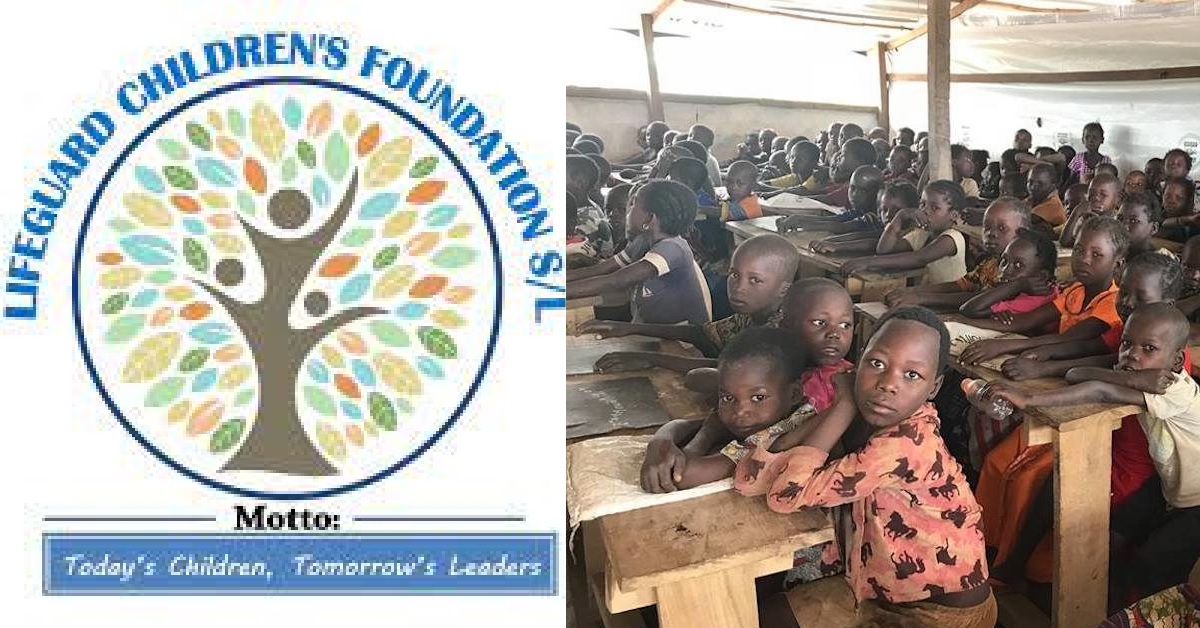The Executive Director of Lifeguard Children’s Foundation Sierra Leone, Mohamed Osman Bangura also known as Political has told this medium that his organization is planning to boost 300 school pupils with learning materials, bags, shoes and used clothes.
He said that though their organization is too young to take such supportive ventures, but he and his team will solicit support from philanthropists, meaningful organizations, NGOs, Government Agencies etc. to help them support these vulnerable children.
Mr. Bangura made this disclosure while speaking on the Impact of the Environment on Children at Leicester Village during the Environmental Awareness Campaign organized by Action for All Sierra Leone Organization in commemoration of the August 14th 2017 mudslide that claimed over 1000 lives and leaving millions homeless. He said that Lifeguard Children’s Foundation Sierra Leone is established primarily to advocate for the rights of the children, provide them educational support, undertake fundamental research on issues concerning our environment and child development, raise awareness and inspire understanding of problems related to the impact of the environment, domestic violence on children’s emotional and psychological wellbeing, Gender Based Violence and empowering women to actively participate in the development and social change that would create more stable environment for all.
He said that a child’s development is influenced by a wide range of factors that are governed by both nature and nurture, he said understanding these factors can help parents to address their children’s needs.
‘’The environment your child, my child and everybody’s child grows up in, attention, affection and overall the food they eat can be a major influence on their lives. Behavioral influences like the child’s emotions, beliefs, attitudes, behavior and thinking abilities can affect health outcomes. Environmental influences are wide-ranging and include infectious agents, toxins, lead and air pollution, and social factors such as loving interactions with caregivers, socioeconomic resources in the family and community, peer relationships, segregation, culture, the availability and quality of services, and policies that directly or indirectly affect these other interactive influences.

I want us all to know that Climate change is a direct threat to children’s ability to grow, survive and succeed. Dangerous weather events like cyclones (tornados) impend their lives and destroy infrastructure are grave to their well-being. Lack of water and poor sanitation facilities, will lead to outbreaks such as cholera, diarrhoea etc. to which children are predominantly vulnerable. Drought leads to crop failures and rising prices of foodstuff create food insecurity and nutritional deprivations for the poor man that can have lifelong impacts.
Children are often involved in the processes of plastic and cups recycling, exposing them to toxic chemicals like lead, cadmium, mercury and dioxins and carbon monoxide, all these chemicals can produce adverse impacts on the health of the children. The home environment can even affect a child’s brain development, risk factor is statistically associated with children who grow up poor are more likely to drop out of school than other children. Thus, poverty is a risk factor for school dropout. The disposal of waste on the environment has created social impact on the health of our children, for example, Bomeh dumping site at Kingtom, Bai Bureh Road, Waterloo town etc. cause discomfort for children living in the surroundings’’, he said, adding that Lifeguard Children’s Foundation Sierra Leone is targeting to provide learning materials and used clothes to 300 hundred vulnerable children in three villages namely Senthai, Kamarainka and Bamoi all in Kambia District.
‘’I am soliciting support from Plan International, UNDP, UNESCO,UNICEF, Ministry of Social welfare, Philanthropists and development partners to put smile on the faces of these deprived children. Some are fatherless. You can donate to us through our orange money 079-078427, our afri-money 077-907495 or can visit our offices at 42 Siaka Stevens Street, or 3 Bai Bureh Road in Freetown.’’




 Post a comment
Post a comment









Comment(s)
Disclaimer: Comments expressed here do not reflect the opinions of Sierraloaded or any employee thereof.
Be the first to comment